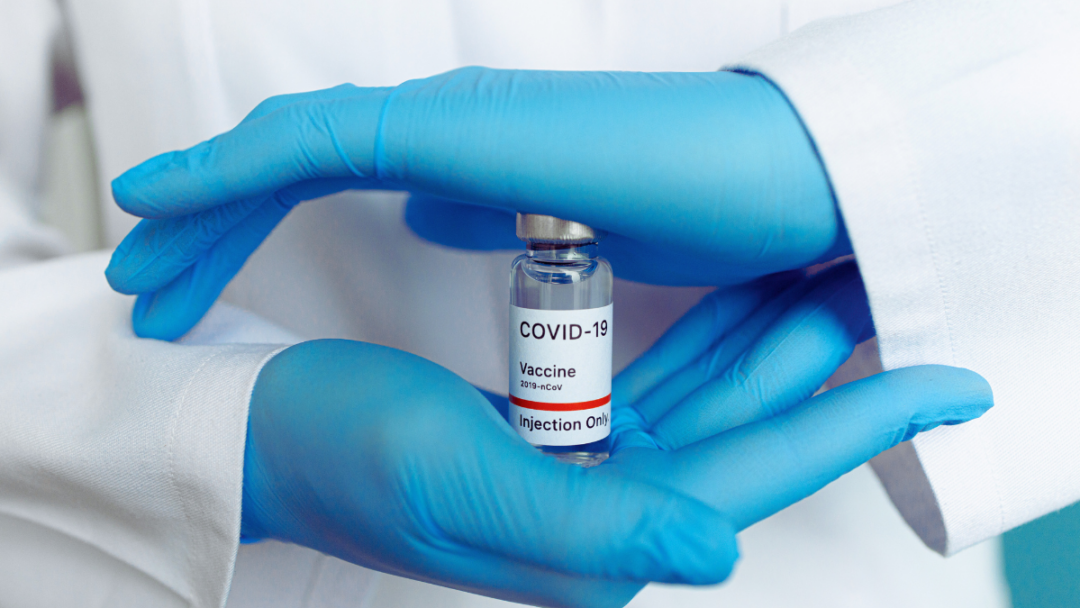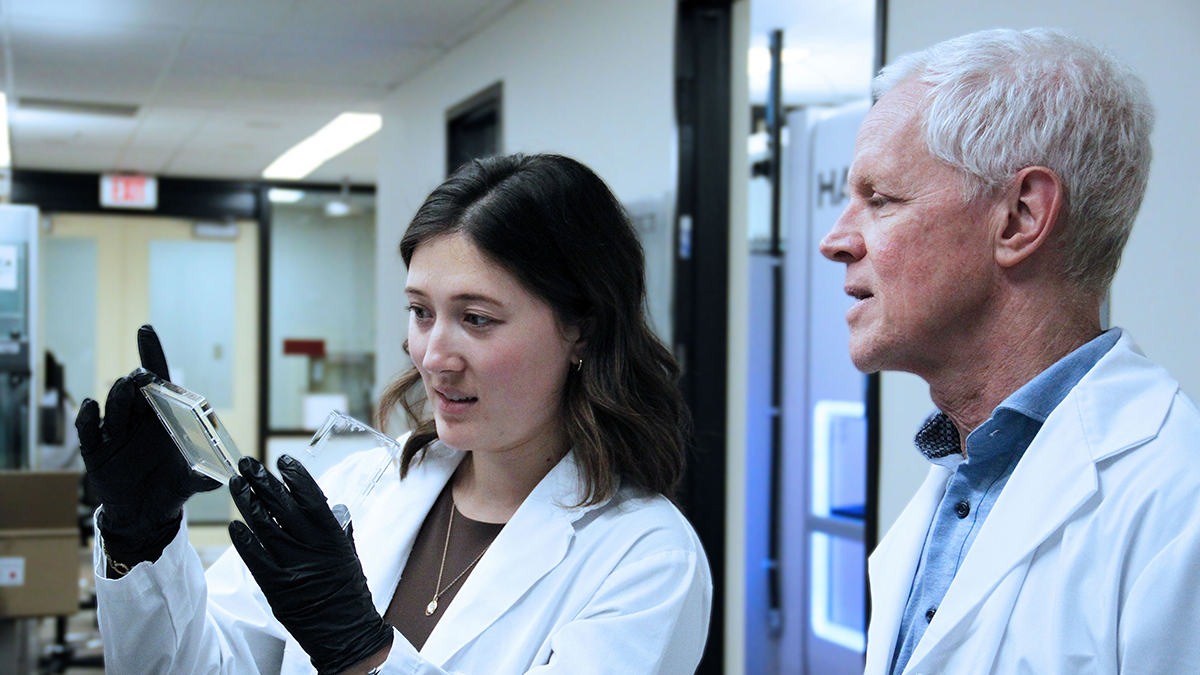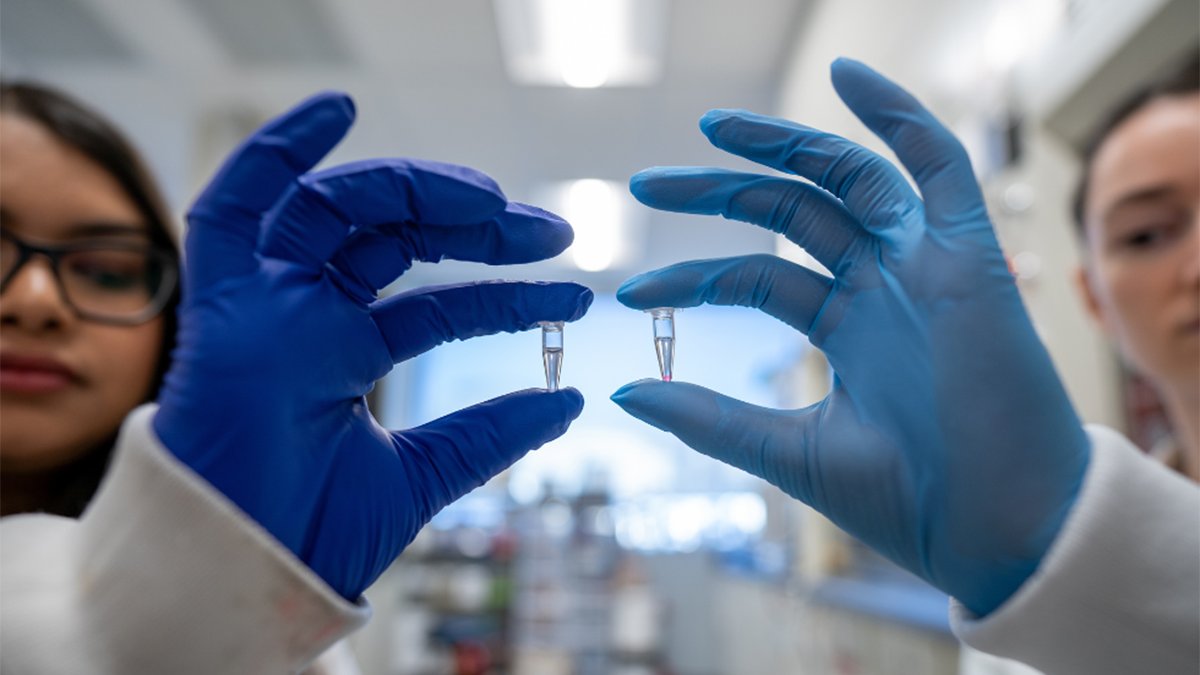Most pregnant people got vaccinated for COVID-19 in 2022

A study of more than 28,000 pregnancies from 2022 has found that the majority of pregnant people received the COVID-19 vaccine during its initial release.
The study, co-led by McMaster University and the University of British Columbia, used data from ICES, an independent, not-for-profit research institute, to provide insight into vaccination rates among one of the groups most vulnerable to health complications caused by COVID-19.
The research, published in the Canadian Medical Association Journal (CMAJ) on Oct. 1, 2024, determined that about 79 per cent (22,581) people who gave birth in Ontario during the first three months of 2022 received their first COVID-19 vaccine dose, and 75 per cent (21,425) received a second dose by the time they were three months postpartum.
Of those who received a first dose, half did so before they were pregnant and only four per cent delayed it until after they gave birth. Researchers say this demonstrates high uptake for a new vaccine, especially during pregnancy.
“It’s encouraging to see this level of vaccination amongst pregnant people because COVID-19 outcomes can be so severe when you’re pregnant. This feels like a public health victory, with people able to access the information they needed to make vaccination decisions from public health sources or clinicians they trust like their family doctor,” says Meredith Vanstone, senior author of the study and associate professor with McMaster’s Department of Family Medicine.
A key finding of the study was that pregnant people were still slightly less likely to receive the vaccine than non-pregnant females of the same age. Among the non-pregnant cohort of same-aged female Ontarians, 83 per cent received an initial dose and 80.5 per cent a second during the same period.
The study also found uptake of the vaccine to be lower among younger pregnant people.
“Throughout the COVID-19 pandemic, misinformation about the vaccines targeted pregnant people, complicating their ability to make well-informed decisions about their health. Despite these challenges, it is reassuring to see that so many pregnant people were able to navigate the confusion and ultimately make decisions that protected their health and the health of their babies,” said Devon Greyson, first author of the study and assistant professor with the School of Population and Public Health at the University of British Columbia.
The researchers accessed a provincial dataset containing de-identified COVID-19 vaccine records to conduct this study.
“We linked information about people who gave birth during our study and their use of health-care services to understand factors that may be related to COVID-19 vaccine uptake, such as where they live or if they gave birth for the first time. Accessing and linking information for all pregnant and non-pregnant people in Ontario who were eligible for the vaccine makes us more confident in our findings,” says Rebecca Correia, a McMaster University PhD student who coordinated the data access request and analysis.
The study was supported by funding from the Canadian Institutes of Health Research (CIHR), a Banting Postdoctoral Fellowship, the Canada Research Chairs program, a Michael Smith Health Research BC Scholar Award and a CIHR/Public Health Agency of Canada Applied Public Health Chair.
Dept. FamMed, ResearchRelated News
News Listing

January 6, 2025

Department of Medicine ➚
Pain to progress: An impactful history of lupus research and care at McMaster
Collaborations & Partnerships, Education, Research
December 20, 2024

Brighter World ➚
McMaster research in 2024: From AI innovation to breakthroughs in health care
Research
December 17, 2024
